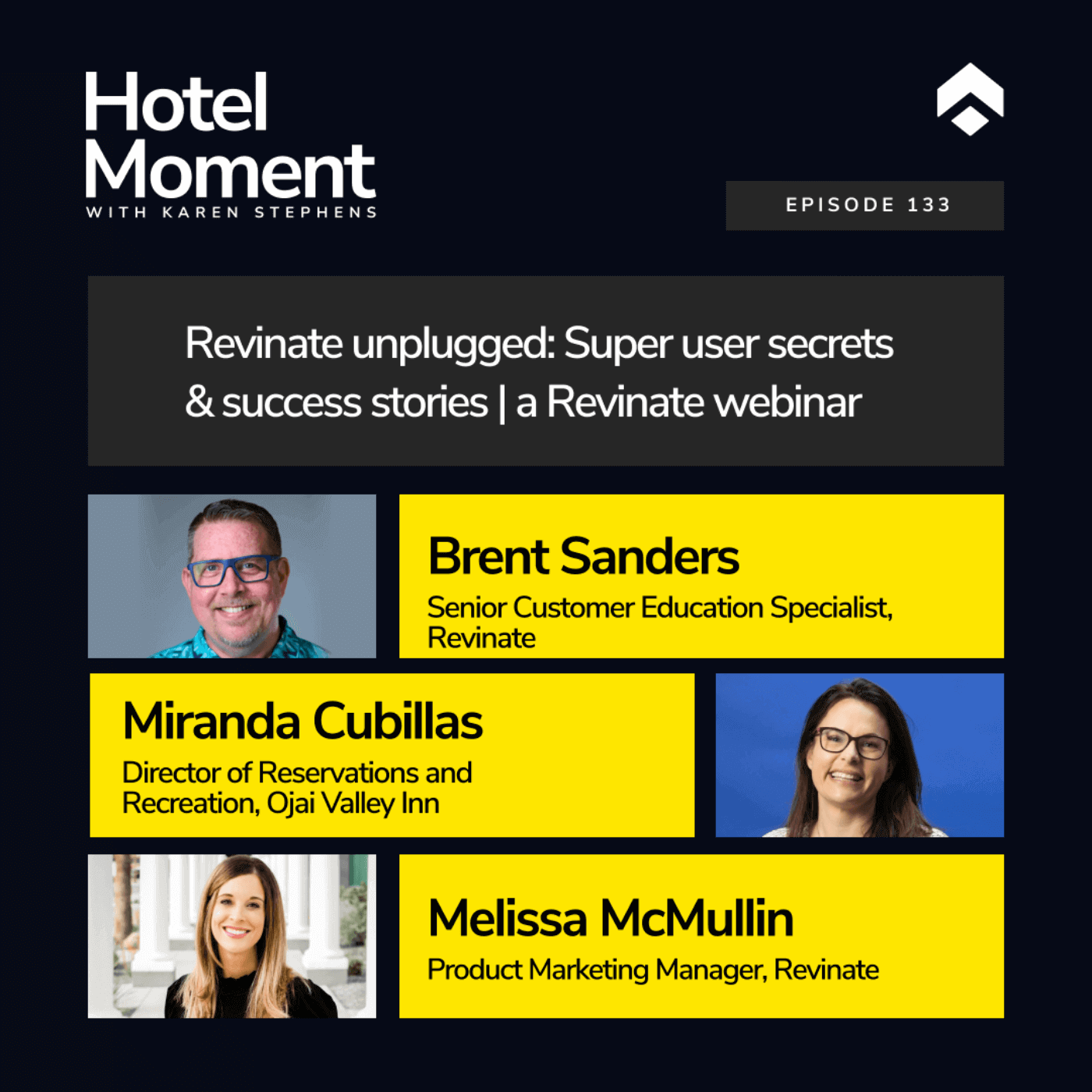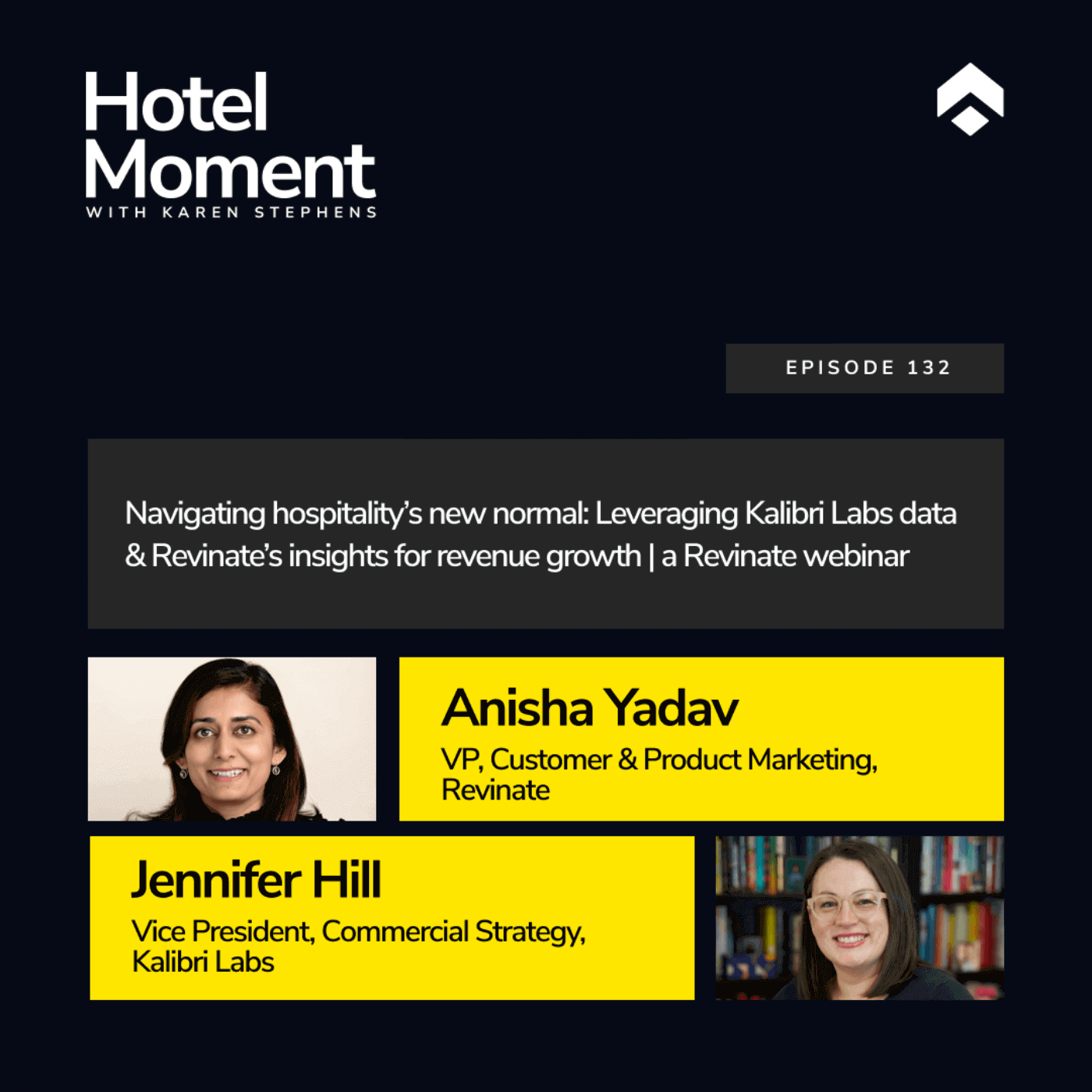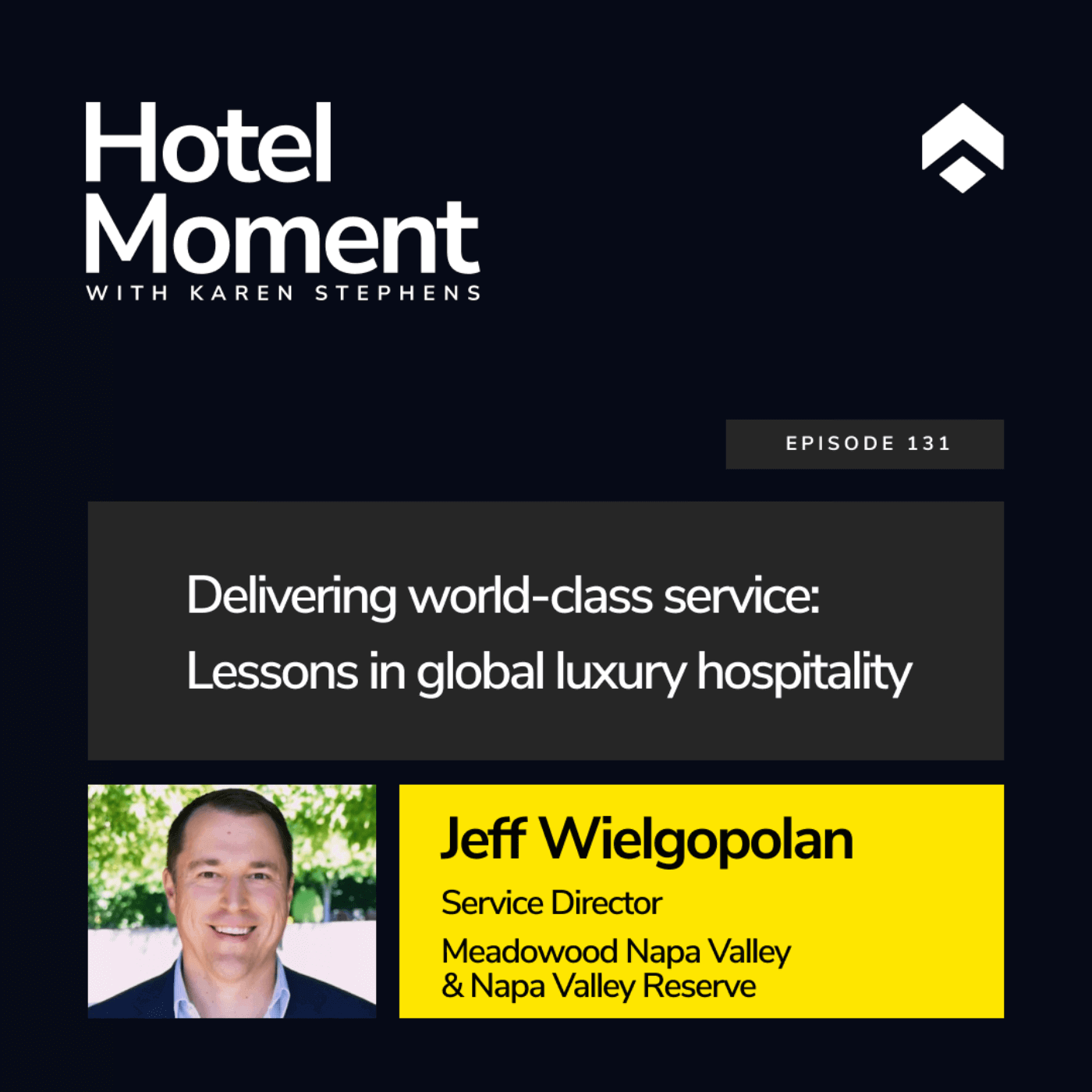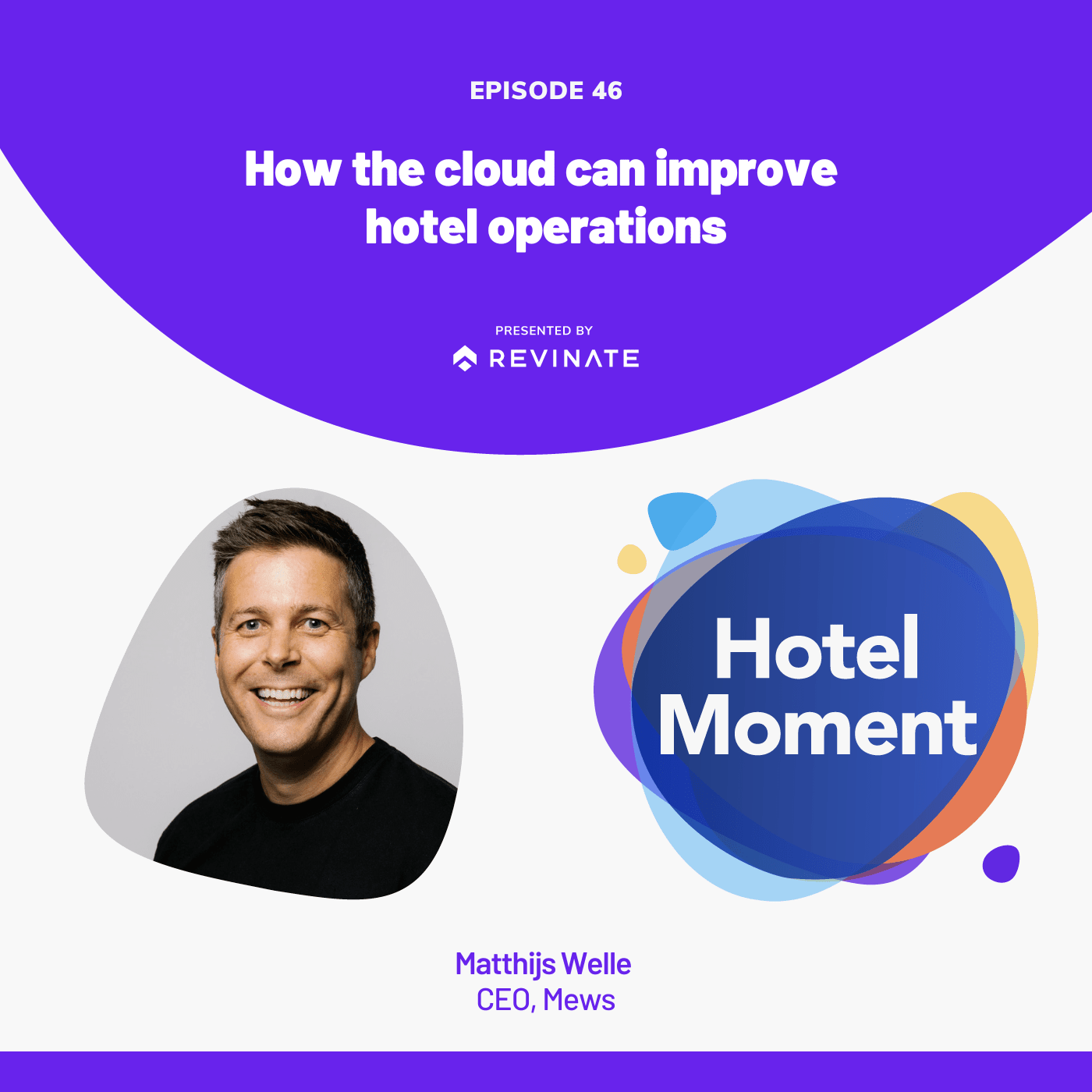

The Hotel Moment podcast — episode 46
How the cloud can improve hotel operations
This week on the Hotel Moment podcast, Karen Stephens, Revinate’s CRO, and Matthijs Welle, CEO of Mews, get technical as they dive into cloud-based software. You’ll learn how moving to the cloud benefits your operations, simplifies data management, and helps you address the root cause of inefficiencies within your hotel.
Tune in for a detailed conversation about the cloud, open APIs, and predictions for technology in 2023.

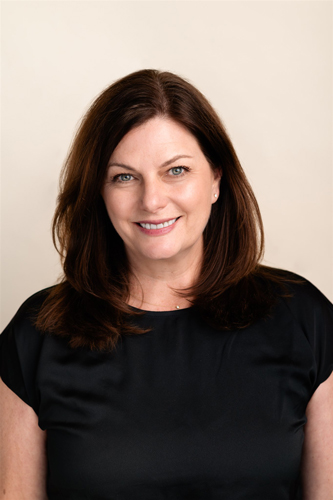
Meet your host
As Chief Marketing Officer at Revinate, Karen Stephens is focused on driving long-term growth by building Revinate’s brand equity, product marketing, and customer acquisition strategies. Her deep connections with hospitality industry leaders play a key role in crafting strategic partnerships.
Karen is also the host of The Hotel Moment Podcast, where she interviews top players in the hospitality industry. Karen has been with Revinate for over 11 years, leading Revinate’s global GTM teams. Her most recent transition was from Chief Revenue Officer, where she led the team in their highest booking quarter to date in Q4 2023.
Karen has more than 25 years of expertise in global hospitality technology and online distribution — including managing global accounts in travel and hospitality organizations such as Travelocity and lastminute.com
Now Playing
Media
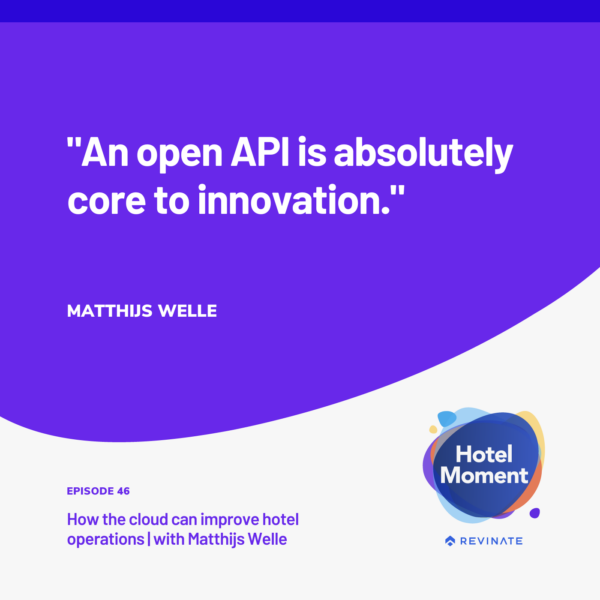
Open API
The cloud helps you get the most out of your data
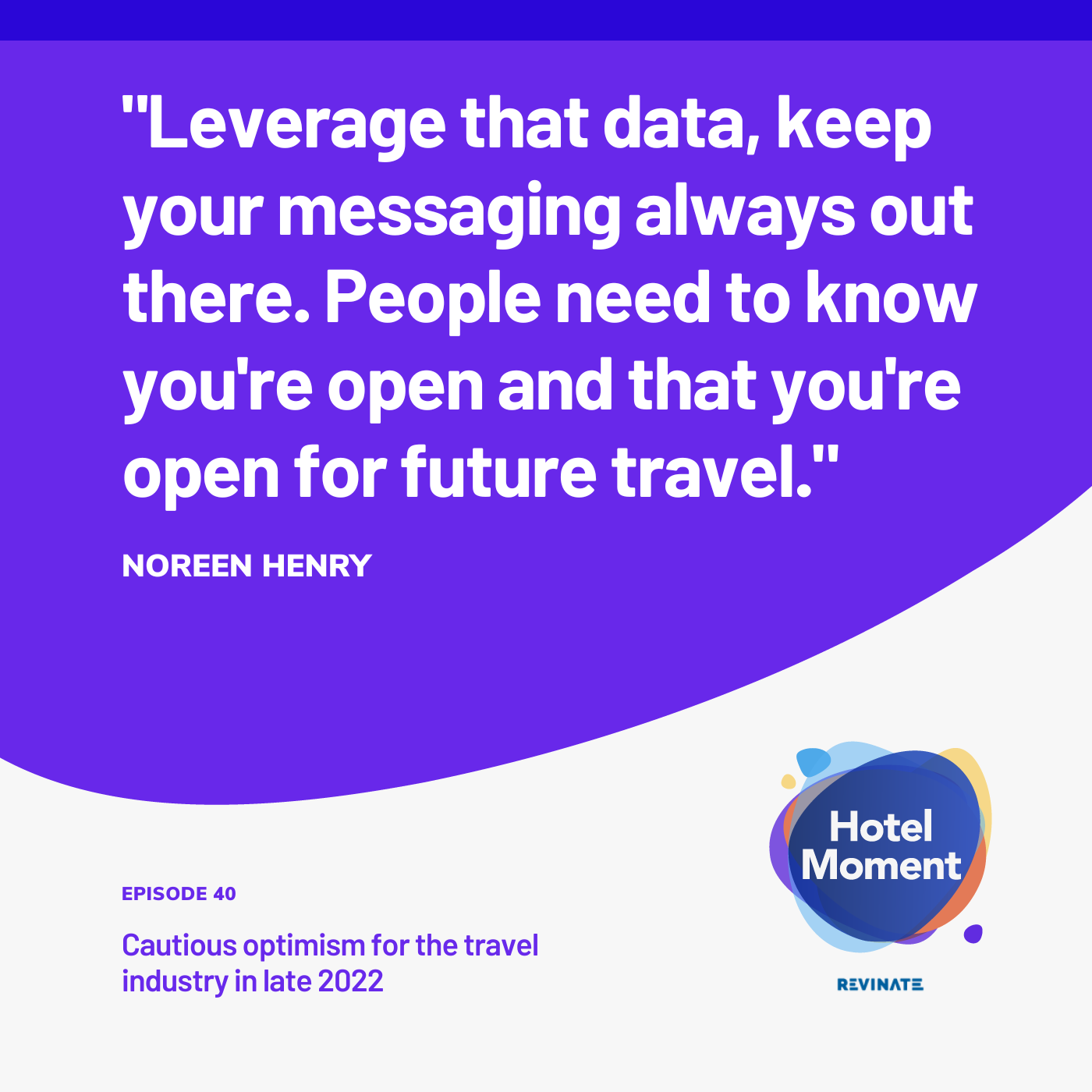
Investing in technology
Tackle the root cause to improve operations
Transcript
Karen Stephens: Hello and welcome everyone to the Hotel Moment podcast. I am your host, Karen Stephens, Chief Revenue Officer of Revinate. Every week on this podcast, we’re joined by industry experts to give us unique perspectives on what’s going on in the world of hospitality. And today I am delighted to be joined by the CEO of Mews, Matt.
Hello, Matt. Thanks for joining.
Matthijs Welle: Hey, hey, hey. Thanks for having me.
Karen Stephens: Absolutely. So today I’m very excited to have Matt on the call because I really wanna talk a little bit more about technology innovation in hospitality. So I think we all know, you know, even, even now, we’re coming up on 2023 and we’re still talking about cloud adoption. We’re talking about keyless entry. We’re talking about a lot of things that we’ve been talking about for a number of years.
So, I wanna dig in a little deeper with Matt on those topics. But first, before we get into all of that, Matt, where are you joining us from today?
Matthijs Welle: Prague in Czech Republic, far away from where you are. I think.
Karen Stephens: That’s right. So I’m in San Francisco, California.
We were talking a little bit before the recording started. Uh, just talking a little bit about how much I love Prague.
So how long have you been based in Prague?
Matthijs Welle: I have been here for 16 years. I’m, I’m originally Dutch and I, I landed here 16 years ago. And I can’t imagine not living here anymore. It’s just, such a beautiful city. It’s incredible.
Karen Stephens: It really is very colorful. That’s what I remember. All the buildings are so colorful and the architecture
Matthijs Welle: Not in February. In February when it gets really cold and dark, like that’s not my favorite month of the year.
Karen Stephens: Right. Just a little geographically challenged. That’s true.
Matthijs Welle: Yeah.
Karen Stephens: Okay. All right, cool. So, um, before we get into the topic today, I wanted to start with a couple of questions that I ask all of our guests. So if you humor me, I have five questions for you. You’re gonna know all the answers, but it’ll give our, our listeners a little bit more of an idea of who you are.
Okay. So let’s get started. So first question, when did you start first working in hospitality and do you remember your first day on the job?
Matthijs Welle: Absolutely. I was 16 and I started working in a restaurant. I’ve always known I was gonna be a hotelier from the age of four. And like at the moment I was legally allowed to work, I went to this forest restaurant where I lived and I asked for a job, and they gave me a job. And I remember when the first guest walked in that morning, and then somebody gave me like a notepad and said, “can you take the order?”
And I remember the panic that I felt like, “well, what do I say to these people? Like, what’s the experience I need to have for these people?” And they’re like, “You literally just go to the table and you just wait for them to start speaking.” And that’s literally what happened.
Karen Stephens: That’s great. Very cool. All right. Second question. What is the most uplifting moment so far in your career?
Matthijs Welle: most uplifting moment. Ooh. It’s hard because there really are so many, like, it’s been an insane journey that we’ve gone through with Mews in the last few years. And, and it’s just what I love most is seeing our team members succeed and really do well. And we’ve got one of these one team members in our company that has been with me for, you know, my career at Hilton and now at Mews.
He landed recently in a role, and I can just see him thriving, and he’s just innovating. When I see someone who I know so well for so many years and see them having looked for the right role and then landing somewhere and doing so well, it, it truly warms my heart. And I think it’s moments like that, that are really special.
Karen Stephens: Yeah, that, you know what, it’s, it’s funny cuz I have a lot of these conversations and so often people point to career progression within the industry, within a company, and also just within the industry as a whole, where you can see somebody starting and then how they move up, and really have those experiences open to them.
So that’s great that, that’s also one of your top.
Matthijs Welle: Yeah, for sure.
Karen Stephens: That’s very cool.
Yeah, all right. So this next one is more about your personal experiences. So what’s the most striking experience so far in terms of a holiday, or a food experience, or hotel, or travel? What’s the most striking?
Matthijs Welle: It’s hard because I am mostly underwhelmed by experiences in hotels, which is also the drive behind what we do at Mews. We want to change some of it. And, I was planning my wedding this year. I was finally, after 16 years together, getting married to my now husband, and we were going into Amsterdam to look for venues. And I really was so disappointed by some of the hotels that I saw.
And then we walked into the Waldorf, Amsterdam, which is crazy, ridiculously expensive. I got lots of people outta my guest list to make that work. But I walked in, and you know, I was with my friend and she just, she, she just mentions like, “oh, I’m so thirsty.” And it’s just this moment, like within a second someone came with a glass of water. And that was the first moment that I was like, the moment that, that happened, my now husband’s, he could see that I was like, “okay, this is, you know, this is a hotel, and we don’t even need to see the venue anymore because I deeply care about service.” And it was throughout. It was like that. Like the turndown service, like every night, you know, you know that bucket of wine that sits in your room with melted ice for three days that they never replace? But every time a housekeeper came in the room, they replaced the ice. So whenever I was ready to drink the bottle of champagne, that was, it was nice and cold, and it was just those little touches that really thought about the experiences I was having. That’s very special.
Karen Stephens: Yeah, that’s great. And I love to, you know, I think it’s interesting because you, you have a hospitality background. You came from Hilton and now you’re on the technology side of the equation. But even those of us that operate in technology, we still are so firmly in this industry, and so deeply tied to guest experience and, and the, the wow factor. So I love that. You know, that’s really cool. And also, congratulations. Congratulations on your marriage this year. That’s great.
Matthijs Welle: For anyone who wonders what changed? Nothing changes. It’s just another day, I guess like that question comes out, “oh my God, what’s changed?” I’m like, “nothing, i’s just another day. I worked just as hard as I did before.”
Karen Stephens: Yeah, huge bill for a great party. And on we go. Okay. Very cool. All right, so fourth question. Have you met any celebrities, while you’ve been in this industry? Either, you know, at Mews or before Mews, at Hilton? Any celebrity sightings?
Matthijs Welle: Disappointingly little. Um, like Obama and, and Bill Clinton. So Bill Clinton, I met when I was working in Scotland. Obama met here in Prague at the Hilton when he came. Um, but like in passing, like nothing exciting. Like I really thought that I would be fabulous enough to have more celebrities come to me, but it hasn’t happened.
Karen Stephens: Right, it has- Obama’s pretty good. I gotta say. I mean, personally if I had met Obama, that would be really good. And Clinton, but Obama for me would be, would be pretty big.
Matthijs Welle: What I like, I prefer like Beyoncé or something that’s like someone I really look up to.
Karen Stephens: Yeah. There you go. I know. I can’t say that I’ve had, I’ve had sports people, but yeah. No Beyoncé. No Beyoncé. All right. So last question to warm us up. Who are the women at work that you have been inspired by? Has anybody come to mind? Um.
Matthijs Welle: Yeah, so when I worked at Hilton, there was a lady who, who became my boss. I, I, was a very young sales director at, at a very large hotel, the largest hotel in the region. And this regional sales director, I remember her coming in for a review and, and it was this 2008 when all of the markets had crashed last time round.
I still remember that, that day when I was in that room and I was being grilled and I had no answers because I’d just been promoted into that role. And it just, I was like, I will never be in a room where, where I’m not prepared. And I love my relationship with her after that because she did see that I wanted to learn and she really helped me and drove my career further.
And she supported me throughout my next promotions after that. I like people that challenged me constantly is, who ask questions that I don’t have answers to, because I don’t wanna be in that room. So it makes me prepare work harder to make sure that I have all the answers beforehand.
Karen Stephens: Right. That’s great. Well, it’s that, it’s kind of that, I don’t know if you wanna call it fear, but it’s that standard, Right? The, the expectation of excellence. But then it also sounds like a nice mentoring layer to underpin that, which is nice too, right? So, yeah. Gotta have both. All right. Then I actually have one bonus question for you.
So can you tell us a little bit about your journey to get to Mews? How you got into Mews and how you got up to the role that you’re in?
Matthijs Welle: So I always thought I would be a general manager of a hotel. That’s my passion. I love hotels and, and I just, I was fascinated by it. And, and I was on that track. I did the elevator program with Hilton, the graduate program in London, South Africa. They then moved me to Prague at an 800 bedroom hotel where I, I did everything, food and beverage, front office sales, then into regional sales.
And I realized that after like nine years of my career, that at some point when you get into a vertical, like into sales for example, and you go up, you don’t learn much more. You just get more responsibility. And it frustrated me. And you also don’t get to have an opinion about other people’s departments, but I have opinions about everything and I, I felt that I was just stuck and I thought if I stay, stick around, I’ll just get more responsibility and, and more frustrations to be honest. And this is the moment when I ran into Richard, who’s the founder of Mews. And he, stands in life in such a different way. He thinks about hospitality in a completely different way. And, and, and I loved the passion, and we became friends.
He was building a hotel in Prague, and he’s like, “I’m, I don’t want a reception desk.” He’s like, “I think it’s the beacon of bad hospitality. This, this token of queuing up at a desk and then you’re gonna get someone staring at a screen.” And he, he’s like, “well, I’m gonna find a solution.” And he never found a solution that works remote.
And then at some point he convinced me to quit my job and to join him. And, for a year I thought I was crazy. And, and I still think that’s today sometimes, but, it’s working out.
Karen Stephens: Yeah, that’s great. I’ve met Richard and what a dynamic personality. He’s so much fun and he really is one of those cool people that you’re like, “okay, this is different. And it’s a fun ride.” I’m sure it’s a fun ride. Yeah. That’s fantastic. Okay, so let’s shift a little bit to the topic at hand. So let’s talk about innovation.
So I read a recent HospitalityNet article that said that, “hotels spend about 2.5% of their net revenue on tech. And that spend actually went backwards during the pandemic.” So, uh, even in 2021, there were about 70% of that number compared to pre-pandemic. Meanwhile, all the rest of the industries upped their spend into technology, You know, to, to, especially around the digital space and all that.
So what’s your take on, you know, why, why is hospitality like this? Where are you seeing areas where we could, change our mindset a little bit and, and go forward instead of kind of stalling out?
Matthijs Welle: Yeah, it’s, hard. And I think the biggest challenge that we have is the inertia that hotels have. This waiting for something better to come along before they make the jump. And they’re like, “if it isn’t broken, then why would I fix it?” But they don’t realize that it has already broken. And yes, you may still be able to check-in and check-out, but your competitors have been doing something very different, and they’ve been innovating.
And for some reason hoteliers around the world really struggle with this concept that you have to invest before you get something out of it. And with technology, you need to make a commitment to say, “I want to change.” I remember when, when Mews was young we had obviously the PMS, but we also had an online check in, which is a native part of it.
And they said, “well, we don’t wanna go through the whole change of the whole system. We just wanna keep what we have, but we’d love the online check-in.” And we’re like, “yeah, but you can’t get a feature of a product if you don’t change the architecture of your setup in the hotels.” And, we look for an easy answer. Most of the time in hotels we’re like, “let’s just buy something light that will solve all of our problems.” But if you don’t tackle the root cause, which is the way that guest data, and revenue data and, and profiles are being managed, if you don’t change that and move that into the cloud, into a solution with an open API, you’re never gonna change inherently the operation. But we are a cash poor industry. We’re not great at managing money. And in low season, suddenly we get into trouble again because, you know, somehow the revenues dropped. Uh, I remember working in a hotel every February, we’re like, “oh my God, what happened? It’s empty.” And I was like, “we’re empty every year, like it’s a thing.” And we’re not great at managing cash flow, and, and technology requires an investment, unfortunately. and that’s one of the challenges I, I don’t yet know how to solve, but it’s definitely something that a hotelier needs to commit to making a change.
Karen Stephens: Yeah, I actually had an interesting conversation with a hotelier recently about how we think about budget season. Sometimes, so to your point, people are looking to adopt technology if they think about that and just what’s gonna happen in the next fiscal year. Obviously that’s not gonna pencil, right? You have to think about how things go. You know, it takes 2 or 3 years for that to really adopt and for you to see the benefit of it. But I think that’s really true. It’s, it’s being able to take that leap and think about it a little bit differently. It’s not like you just buy a piece of technology and all of a sudden everything transforms and something that has to happen over time, and it’s operational.
Matthijs Welle: Like today, just, I had a call with, with one of our customers, Generator Hostels, and Claudia, who was my contact person there. One of the things she loved was our API, and I’m like, “wow, you’re one of the very few hoteliers who knows what an API is to begin with.” She’s like, “yeah, but it’s the piece of Mews that really changed because I suddenly was able to plug in integrations and try out, and if it doesn’t work, I unplug it again.” But getting hoteliers to understand that an open API is absolutely core to innovation. Like it light up my heart just hearing her say API, like it’s a word that hoteliers just don’t use.
Karen Stephens: Absolutely. Well, especially when you consider, you know, Mews is obviously a property management system. You’re holding the core profile that’s got all of the data, the booking data, what they bought, how they bought, when they booked, all of those things. And you need to be able to repurpose that data into other platforms so that you can personalize and really get, I mean, obviously we have a connection into Mews. We have mutual customers, but that’s really the core data set. So if you’re not able to test and try, and use it in other places, it’s just, you know, what’s the point of having it? It’s just then the PMS just becomes an inventory management system. It’s just check in check out.
Matthijs Welle: And that’s the challenge. Like one of the things that we are like-well, we’re in the cloud at some point. We, we started with the PMS and at some point we’re like, “well, we’re in the cloud, so the employees now can log in.” Great, that’s a nice benefit, but actually, like the data could be managed by the guests as well.
“Why don’t we create an online check in platform where the guests can manage their own data? It becomes much cleaner.” And that was a real shift. And, we could only do that because we were in the cloud. And now it’s been a major feature in the system because you want clean data, you want that data to be repurposed for marketing purposes. And I don’t wanna write to Mr. Jones but get his name wrong all the time. So I’d rather have Mr. Jones fill in his own profile and with his own gender, and address him correctly with the right gender. And those are little things, but they do make an impact.
Karen Stephens: They make a huge impact. And, and how efficient is that to have the data audited?
It’s like, are you a man or a woman? Cuz sometimes you don’t know. You don’t know with names. You can have first name, last name in different places. There’s a lot of things with data that people really don’t think about.
And especially when you have a property management system where a lot of people are giving input, there’s a lot of opportunity for, you know, misspellings and all that. So I think that’s brilliant,
Matthijs Welle: When we started working with, with Revinate, I think you were one of our very, very first integrations. I’d say seven, eight years ago. Like it’s crazy amount of time since then. And I remember I was traveling with one of your sales people at the time and he’s like, ‘where Swiss hotels are really struggling is with the way that the formatting of the name is being done.” And I just pinged our developer and it was fixed overnight and he is, he was just like, “our customers are so happy. Our mutual customer is so incredibly happy that we were able to fix the ending of the name correctly.” Because they came off a legacy solution before and they just hadn’t anticipated that we could actually solve that together as to tech partners.
But you can in the cloud.
Karen Stephens: You can, and you could do it quickly. And what a difference because exactly. If you’re getting a, an email that says Mr., and you’re a miss, then you’ve already blown it,
Right? You haven’t even done anything in your, yeah, that’s great.
Okay, so I’m very excited that you are based in Europe and obviously Mews is based in Europe. And we have an office in Amsterdam as well, but you do obviously do business globally.
So, what are some of the biggest cultural differences you see? Let’s just start with Europe and America. So how do you think about the approach and what differences do you see? I’d just love to get your perspective on that.
Matthijs Welle: Yeah, it’s funny how, how the business is different because you- we’re all quite arrogant, Americans and Europeans, the way that we think. We’re gonna go to the rest of the world, so we came outta Europe into the US and we’re like, “I’m sure they work just like European hotels”, and they don’t. Like, service is a very different service than what people in, in Europe are used to.
And we’ve had to over-invest in service delivery in the US because it’s expected that you get a really fast response timem and it has to be super helpful and friendly. And in Europe, yes, we still need a minimum level of it, but the expectation isn’t critical to the partnership to that level. And I think service was one of the big challenges.
But also the US just has a higher expectations of the solutions because the hotel market is very different there. They all come off one main supplier and that solution does everything. And, in the cloud you don’t get every bell and whistle that you used to have. That’s hard for a young cloud company to come into.
And it’s the education of, well, “what’s the problem you’re solving?” Versus, “I need that feature because I’ve always had that feature.” It’s just shifting conversation that we’re trying to have with the American customers. And because we’ve been in Europe so long, and we’ve been having that conversation so long, it’s gonna take a little bit longer in the US to really shift from, “I understand that you are looking for this feature. Tell me about the problem that you’re trying to solve, because maybe we can solve it in a better way.” And that’s a really difficult conversation to have or a mind shift that we’re going through as a company. I’ve also seen it with US companies coming into Europe that go the absolute opposite way, where they’re like, “oh, I didn’t realize you had VAT versus sales tax that they do in the US.”
And, you are always gonna run into little challenges that you encounter. But luckily in the cloud, you can fix all of that, and you can deploy it very fast. And I think we’ve done a lot of lessons. When we came into the US first, one of the big mistakes was like the registration card.
It’s such a big thing. And we printed the dates in European format and it’s, I wanna slap myself on the face for it now because we’re like, “of course we should have done that in American formats”. But, we fixed that very quickly. And then really bigger problems are the service issues that we need to solve.
Karen Stephens: You know, you said something that would be music to my VP of Product’s ears, which is, “what are you trying to accomplish?” Because I think that we also, you know, obviously when you have a technology platform that does a lot of things, people get used to doing it one way or another, and it’s a balance between articulating, “look, this is where we’re going and here’s the vision. And you know, this is going to be something beyond your wildest dreams and you’re hung up on a feature here that, let’s understand what your end goal is and then we can talk about how we get there.” Right? So.
Matthijs Welle: We were rated down the other day on an RFP because we ticked the box, “do you have a night audit?”, with “no.” And the night audit is one of those things that is a relic of when we were working in DOS in hospitality, and that somehow migrated into the Windows when there was no need for it in Windows, honestly, because the computers could handle the amount of data.
And it was a process that was put in place because the, old computers couldn’t handle the amount of data. But we’ve now educated hoteliers that you must have a night audit to, to end your day. And for us, like we’re like we never built it. And we actually got scored down because most of the RFPs are built on legacy systems, and they haven’t updated the RFPs that you’re running into in hotels still today.
Karen Stephens: Well I know it’s, it’s hard to get a crystal ball out, but we are coming up on 2023. We got a lot happening out there in the world. So any cool crystal ball predictions that you’ve got as we head into Q4 and Q1 of next year?
Matthijs Welle: Like I do see a lot of hotels moving to change into the cloud. We see a lot of acceleration, especially from the larger brands. It feels like the legacy systems are on their last legs. And we have a huge amount of conversations right now with some of these bigger brands that are finally realizing that you can innovate. And what’s been nice is that the independent hotels have been innovating way faster than the big brands. And I, I think we’re gonna see a significant shift into the cloud by the big brands, but we need some of these big CEOs to step up and say, “we are committing to the cloud and not a halfway solution.
We have to be in the cloud with our core infrastructure.” But I really do think that we’re gonna see a massive shift in some of those brands next year.
Karen Stephens: Excellent. All right, well, we’ll see. We’ll see if that, if that holds true. I think, I think you’re onto something there and I hope that you are because the more hotels that are in the cloud, the better for all of us that use all of that juicy data to do all the cool things we like to do. All right, well, we’ll leave it there.
Thank you so much, Matt, for your, for your time today. If people would like to learn a bit, a little bit more about Mews, where do they go?
Our website, like it’s super easy. M-e-w-s, Mews.com.
Karen Stephens: Dot com. All right, great. Thanks Matt. Have a great rest of the year and we will talk soon.
Matthijs Welle: Thank you.

